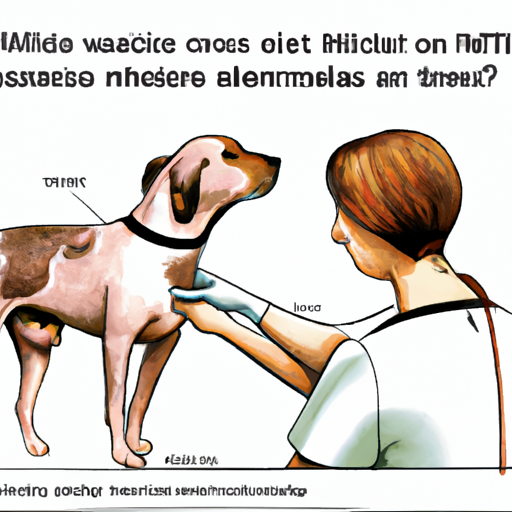Introduction
As a loving caregiver for your four-legged friend, you’re always on the lookout for signs that something might be amiss. You’ve probably dealt with ticks, fleas, and the occasional upset stomach. But are you acquainted with mastitis in dogs? This condition, which affects nursing mothers, can cause discomfort and potentially serious complications if left untreated.
Understanding Mastitis
Mastitis is an infection of the mammary glands in nursing dogs. It typically occurs when bacteria enter the mammary gland via damaged skin or the nipple opening. It’s often painful and can lead to severe illness if not properly treated.
Here are some common symptoms to watch out for:
- Swollen, hard mammary glands
- Discoloration of the skin around the glands
- Pus or blood in the milk
- Fever
- Lack of appetite
- Lethargy
Causes and Risk Factors
Mastitis is usually caused by bacteria such as Escherichia coli, Staphylococcus, and Streptococcus. These bacteria can enter the mammary gland through a wound or cut in the skin, or they may be introduced by puppies during nursing.
Some risk factors for mastitis include:
- Poor hygiene
- Abrasions or injuries to the nipple or mammary gland
- Overcrowded living conditions
- A weakened immune system
Treatment and Prevention
Treatment for mastitis generally involves antibiotics to fight the infection. In severe cases, surgery may be necessary to remove the affected mammary gland. Your dog will also benefit from warm compresses applied to the inflamed area and plenty of rest and hydration.
Here are some prevention tips:
- Ensure your dog’s living area is clean and free of sharp objects that could injure her.
- Regularly check your dog’s mammary glands for signs of inflammation or injury.
- Provide a healthy diet and regular exercise to boost her immune system.
Prognosis
With early detection and proper treatment, most dogs recover fully from mastitis. However, if left untreated, the condition can lead to severe complications such as gangrene, septicemia, or abscesses in the mammary glands.
| Condition | Prognosis |
|---|---|
| Mastitis with early detection and treatment | Most dogs recover fully |
| Untreated mastitis | Can lead to severe complications |
Frequently Asked Questions
Q: Can mastitis in dogs be prevented?
A: Yes, through good hygiene, regular health checks, and keeping the nursing area clean and safe.
Q: Can my dog nurse her puppies while being treated for mastitis?
A: It depends on the severity of the infection. Always consult your vet for the best course of action.
Q: Is mastitis in dogs a serious condition?
A: If left untreated, it can become severe. Early detection and treatment usually lead to a full recovery.
In conclusion, mastitis in dogs is an unpleasant condition, but with your vigilant care and swift veterinary intervention, your canine companion can make a swift and full recovery.



